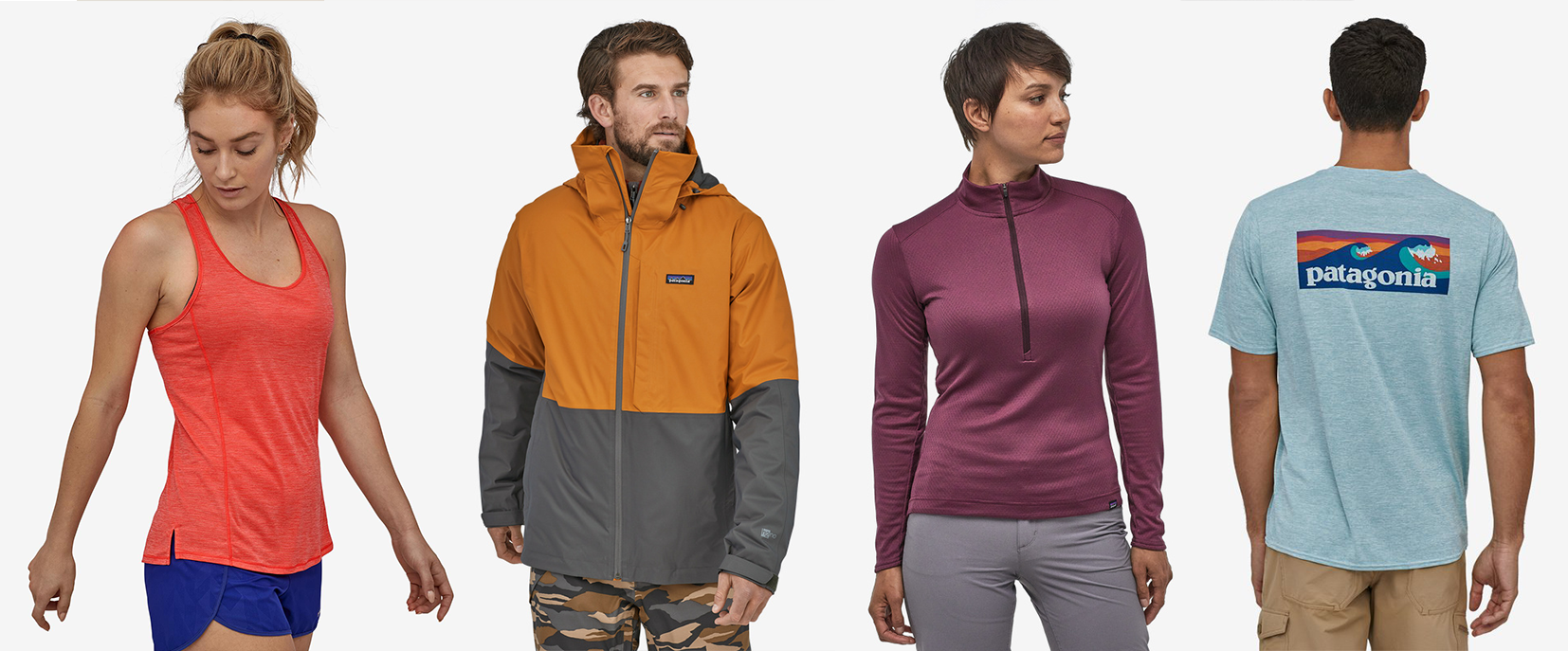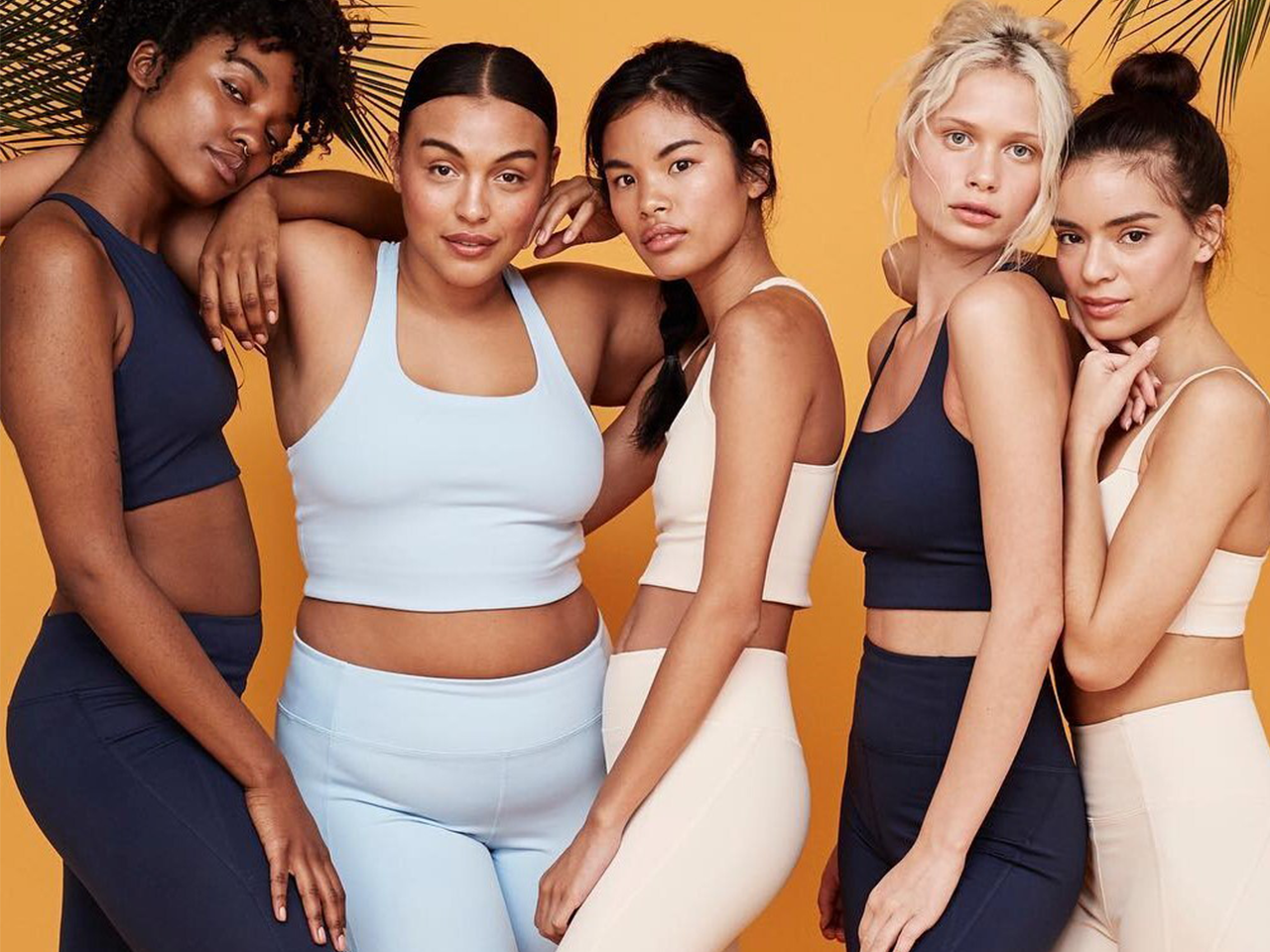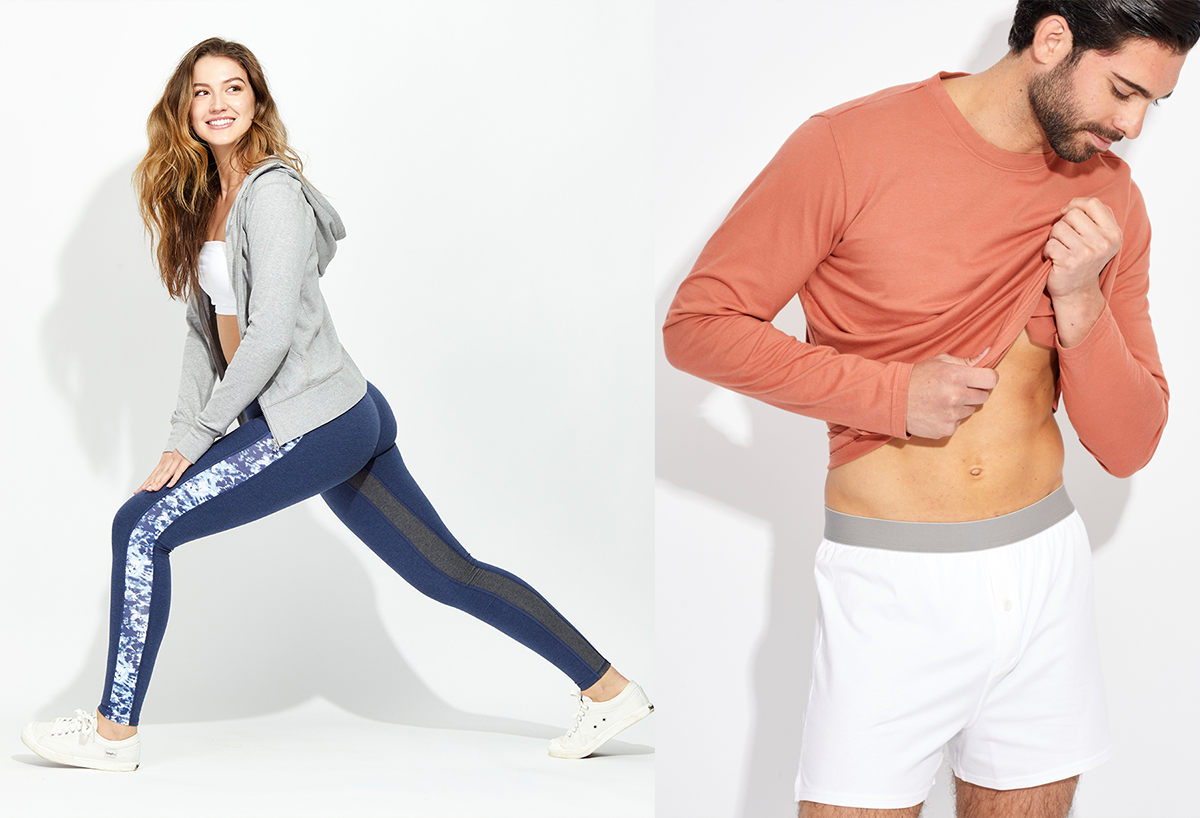10 Sustainable Activewear Brands that You Should Know
Calling all CrossFitters, yogis, runners, bikers, and dancers alike!
Whether you’re just a beginner yoga enthusiast or an expert mountain biker, chances are that at some point in your life when you’re all set to work out, but your favourite sports tee is torn, or the leggings that you’ve gotten on an e-commerce sale ripped up after the third wash. Bummer.
Over the years, sportswear has evolved into the fast fashion that we know of. Quite literally, that they move fast through the racks of shopping malls by virtue of seasons and fashion trends, and don’t last long enough only to end up in landfills. By 2030, it is anticipated that the total fashion waste would amount to roughly 147 million tons! To remedy that, as consumers we should constantly educate ourselves of the detrimental impacts of fast fashion, as well as making the right decisions in terms of purchasing garments.
In our last article, we’ve talked about what you should look out for when shopping for activewear. Thankfully there are a myriad of brands that produce clothing with sustainability as their priority, without sacrificing their designs, comfort, and performance. We’ve rounded up 10 sustainable activewear brands that you should know, so that you could work out a sweat while keeping the planet happy!
PATAGONIA
Do you live and breathe the great outdoors? Look no further than Patagonia, famous for its sustainable outdoor and adventure gears. They produce clothing and essential items for a variety of outdoor sports activities, ranging from skiing, surfing, fly fishing, climbing, trail running, mountain biking, snowboarding, kitesurfing etc. Most of Patagonia’s materials are recycled rather than virgin, including its polyester, nylon, and wool. All of its cotton is also certified organic by the Global Organic Textile Standard (GOTS).
Patagonia is committed to reducing apparel waste on landfills, and has launched Worn Wear, a repair and reuse program. Customers could send their Patagonia clothing to repair to extend its lifetime, or trade in their pre-loved clothing and receive a credit for a future purchase. Customers could also purchase used Patagonia goods at Worn Wear, giving used clothing a second chance.
GIRLFRIEND COLLECTIVE
Girlfriend Collective creates minimal women’s activewear and innerwear with playful colours, yet gets serious when it comes to the materials of which their clothing is made of. Sports bras made from 11 recycled plastic bottles, compression leggings from 25 bottles, windbreakers from 34 bottles. And you’ve got T-shirts and tank tops that are made of 100% Cupro (a delicate fibre regenerated from cotton waste left behind by the cotton industry). Dyes used are low-impact as well as non-toxic, and are fully Oeko-Tex Standard 100 Certified. Women of all shapes and sizes are celebrated at Girlfriend Collective, with their sizes spanning an impressive range of XXS all the way to 6XL, so no one feels left out.
ReGirlfriend, Girlfriend Collective’s new recycling program encourages customers to send in their old GC leggings to upcycle them into new pieces, and customers receive store credit as a token of appreciation.
ORGANIC BASICS
If you’re into everything organic, then check out Organic Basics. The Denmark-based brand offers loungewear, innerwear, and activewear for men and women made with organic materials. Organic Basics only picks eco-friendly fabrics, and only partners with certified factories that care about their impact and share the same sustainable goals. They also commit to design with simplicity, functionality, and durability in mind.
Organic Basics has teamed up with Chooose, to balance their carbon output. Choose is an organisation that makes businesses and individuals carbon balanced by investing in UN-verified or Gold Standard carbon dioxide reducing projects in developing countries - like solar power in India and wind power in Turkey. Customers can purchase carbon credits on Organic Basics’ website, and Chooose will direct the credits towards carbon dioxide-reducing projects in developing countries.
PACT
Pact made its mission to make organic clothing more accessible to everyone. Therefore Pact’s range of lifestyle essentials, from loungewear, activewear, innerwear, and maternity wear are almost entirely made from certified organic cotton, with more than 50% of them Fair Trade certified. All of their clothing is sweatshop-free and child labor-free too!
To encourage goodwill and philanthropic acts among consumers, Pact has even partnered with Give Back Box for a clothing donation campaign, where everyone can donate their used apparels (even non Pact-branded ones) to local charities.
ELLE EVANS
Elle Evans, based in sunny Australia, is known for their sustainable swimwear and activewear line made from plastic waste from oceans and landfills, such as ECONYL fibers. ECONYL Nylon fibers are made from plastic waste and fishing nets from oceans, industrial plastic, and fabric waste. Those waste products are then cleaned, recycled and regenerated into new nylon yarns, which are then used in commercialized garments. And once the garments made from ECONYL have reached the end of its life cycle, it can be recycled again to produce new clothing. This closed loop process means it’s much more low-impact and energy-saving than traditional production of virgin nylon. Each of their garments is made to order to reduce post-consumer waste from conventional mass production.
In fact, some of their designs utilize leftover fabric scraps, so nothing is left to waste! Supportive of different shapes, their sizes range from XS to XXXL, so you don’t have to worry about not finding the perfect fit.
MIAKODA
Vegan, organic, and based in the Big Apple, NYC. Miakoda is all about ultra cosy active and loungewear made with plant-based organic that feels great on the skin. Materials like organic cotton, bamboo, soy, Lyocell, Modal make the list of Miakoda’s earth-friendly materials. Fabric scraps were given a new breath of life through their Zero Waste collection, where leftover fabrics from production were repurposed into other accessories and garments. All of Miakoda’s shipping and packaging materials are also sustainable and made from 100% recycled materials. Neat!
THREADS 4 THOUGHT
Founded way back in 2006, Threads 4 Thought offers a full line of loungewear and activewear, all made from environmentally-friendly materials and by fairly paid workers. T4T’s material inputs include certified organic cotton, recycled polyester, and Lenzing modal, which is made from spinning cellulose from beech trees. The water and solvent used to transform beech wood pulp to a soft fiber is recovered and recycled back for re-use at a recovery rate of 99%! In addition to the low environmental impact of the harvest and production process, the fibers are biodegradable and compostable, allowing them to eventually revert back to nature.
T4T also does not use leather, fur, or angora in its products, but does use wool in a few products. Since all of their materials are natural, recycled, and renewable, the garments produced have less impact towards the earth, and less waste is diverted towards landfills or waterways.
PANGAIA
Pangaia is a material science company, where science meets practical fashion. As per their brand name “Pan”, which means “all inclusive” and “Gaia”, which refers to “Mother Earth”, Pangaia resolves to solve environmental issues by coming up with new and innovative solutions.
They produce clothing collections created from bio-materials and recycled fibers by partnering with designers, scientists and researchers. T-shirts made with seaweed fibre, puffer jackets stuffed with their patented fully biodegradable FLWRDWN technology, botanical dyes, organic cotton, recycled materials, and perhaps more to come from Pangaia’s scientists! In order to keep garments stay fresher for longer, Pangaia uses a natural fabric finishing treatment with peppermint oil (known for its antibacterial effects) on their garments. Therefore you wouldn’t have to wash your shirts as often, saving you water and energy. All Pangaia products are packaged in compostable packaging. And the best part? Pangaia gives back to the environment by planting one Mangrove tree in Indonesia with every sale.
ADIDAS X STELLA MCCARTNEY
In one of the greatest crossover of all time, luxury brand Stella McCartney collaborated with Adidas to create sleek activewear and sneakers from recycled materials such as recycled Parley Ocean Plastic®. Parley collects plastic waste from oceans and coastal communities to prevent them from reaching the ocean, and then repurpose them into yarns to be used in apparels. And Stella, who’s known to put sustainability at the forefront of her own brand, and also teamed up with Adidas to release a line of the iconic Stan Smiths, made with 100% vegan leather.
Adidas has pledged publicly to reduce its direct and indirect greenhouse gas emissions (and also of their suppliers’) in absolute terms by 30% by 2030, and to achieve climate neutrality to mitigate the effects of climate change.
NUBE
If fun and punchy prints are your thing, definitely look into Nube. Nube supports artists by collaborating with them to churn out funky prints that are inspired by the environmental crisis that surrounds us, inspiring connection and action in the process, how cool is that?
Recycled plastic and fabric scraps are used in their activewear line, ensuring a closed-loop manufacturing process, thereby reducing the environmental impact. Dyes that are used on Nube’s activewear are non-toxic, lead-free and low impact, unlike conventional dyes and finishing treatments that contain heavy metals and toxins which pollute the waterways. The wholly woman-owned brand manufactures their clothing in the United States, empowering local economies and providing jobs while reducing their carbon footprint (The nature of conventional garment manufacturing causes a ton of carbon emissions, from the transportation and shipping of raw materials to processing and to retailing).
You may have noticed that a good majority of the brands in this article uses recycled polyester as their main material and you might be thinking, how is that earth-friendly?
Recycled polyester fibers are the more low-impact, resource-saving version of their virgin counterpart. Recycled polyesters are made from industrial plastic by-products, discarded PET bottles, fishing nets, and so on, which helps to clean up the seas and marine life from being suffocated with plastics. Recycled polyester reduces energy consumption by over 45%, water consumption by almost 20%, and greenhouse gas emissions by over 30%! Thus, as long as we’re purchasing and supporting brands that use recycled polyester, that’s still much better than buying something that has a significantly more negative impact on the earth.
Besides, instead of splurging on activewear trends that come and go or snapping up that super-cheap bargain sale, we should think twice before purchasing. In order to reduce our environmental footprint, and inadvertently buying something that won’t last, we should all make more informed choices, and invest in a few high quality, yet sustainable pieces. Why is that? As every article of clothing ever made, has an impact on the earth, whether it is made of organic or recycled materials.
If you’re interested in integrating sustainability into your current garment production, it can be challenging yet daunting to figure it all out on your own, but we can help! Have a look at our sustainable technologies that don't compromise on performance, and feel free to send us a message to find out more and request samples!











